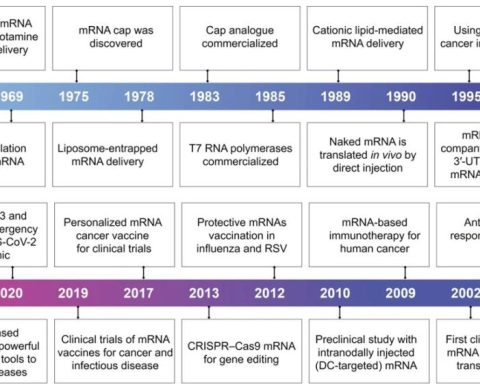By Justin Kozak, Executive VP & Life Sciences Lead, Founder Shield
The tide is turning in the once-booming biotech industry. Funding slowdowns and heightened competition are forcing companies to re-evaluate their strategies. Restructuring, including mergers and acquisitions (M&As) as well as workforce adjustments, has become a common theme. In this shifting environment, proactive risk management and strategic planning are crucial for biotech leaders. This post reviews solutions to help companies navigate these challenges, build resilience, and secure their long-term success.
The Strategic Benefits of Restructuring
In the ever-evolving biotech landscape, restructuring – think streamlining operations, workforce adjustments, or M&A activity – has become a strategic tool for growth. When executed thoughtfully, it unlocks a treasure trove of benefits:
- Sharper Finances: By eliminating redundancies, companies free up resources to fuel innovation and high-potential projects, boosting their financial health.
- Faster Breakthroughs: Streamlined workflows and decision-making expedite product development, allowing companies to capitalize on market opportunities and gain a competitive edge.
- Enhanced Focus: Strategically aligning resources with specific areas of expertise allows companies to become leaders in those fields, deeply understand market needs, and develop targeted solutions.
- Investor Confidence: Restructuring demonstrates a commitment to long-term profitability, building trust and attracting new investment for future growth.
However, restructuring can also impact employee morale and public perception. Let’s explore how biotech companies can navigate these challenges and prioritize well-being for a smoother transition and a positive image.
Building a Resilient Biotech Company
The winds of change are blowing through the biotech industry, and restructuring has become a common theme. But for forward-thinking leaders, this isn’t just a challenge to downsize – it’s an opportunity to build a more resilient company. Here’s what it takes:
- Embrace Foresight: Anticipate potential risks associated with restructuring. This means scenario planning for funding fluctuations, streamlining operations for efficiency, and staying ahead of evolving regulations.
- Prioritize Transparency: Open communication with employees, investors, and patients is key. Clearly explain restructuring plans and their rationale, fostering trust and minimizing reputational risks.
- Invest in People: Restructuring often involves workforce adjustments. By providing clear communication, robust severance packages, and outplacement services, you can minimize disruption and retain a positive company culture.
- Embrace Risk Management: Don’t go it alone. Partner with risk management experts to identify and mitigate potential threats. From financial risks to operational delays, a proactive approach keeps your company on solid ground.
By taking these steps and fostering a culture of resilience, biotech leaders can navigate restructuring not just as a survival tactic, but as a springboard for future success.
Risk Management Considerations for Biotech Leaders
Restructuring can be a double-edged sword in the biotech industry. While it can lead to cost optimization and increased efficiency, it also introduces a multitude of risks. To navigate this process successfully and ensure long-term success, risk management becomes your most valuable strategy. It’s vital to focus on key risk areas during restructuring.
Financial Risk
Financially, restructuring through layoffs can be tricky. Companies face the immediate burden of severance packages, potentially hindering cash flow. Additionally, the remaining workforce may experience a dip in morale and productivity, impacting short-term goals. Former employees might file employment-related lawsuits, alleging violations, such as in the Gro Intelligence case. Finally, losing experienced employees can lead to a loss of valuable institutional knowledge, requiring further investment in training replacements.
Operational Risk
Layoffs can trigger a domino effect of operational headaches. Disruptions to established workflows lead to delays and inefficiencies. Innovation can also take a hit, with the loss of key personnel hindering progress on crucial research and development projects. The impact can even extend beyond the company itself, with potential supply chain disruptions if layoffs occur within critical vendor networks.
Reputational Risk
Layoffs can cast a long shadow on a company’s reputation. Negative press coverage can damage the company’s image and make it harder to attract top talent in the future. The morale hit among remaining employees can create a toxic work environment, leading to increased turnover. Perhaps most damaging, investors and partners may lose confidence in the company’s leadership and ability to navigate challenges effectively.
Insurance: A Shield for a Smooth Restructuring
In the midst of restructuring, even the most carefully planned workforce adjustments can lead to unforeseen legal challenges. Employment practices liability (EPL) insurance acts as a vital shield during this process. This insurance provides financial protection against employment-related lawsuits alleging wrongful termination, discrimination, or other employment-related issues arising from layoffs.
EPL insurance can cover legal fees, settlements, and judgments, mitigating the financial burden associated with such claims. By offering this layer of protection, this coverage allows companies to focus on navigating restructuring smoothly and efficiently, without the fear of crippling legal costs derailing the process.
By proactively addressing risk through effective risk management and strategic use of insurance solutions, biotech leaders can navigate restructuring with confidence, minimize disruption, and build a more resilient company poised for long-term success.
Author Bio: Justin Kozak is the Executive VP at Founder Shield, a tech-enabled commercial insurance brokerage. He leads the Life Sciences practice, having 10+ years of experience in risk management with Hub International, PBC, and now Founder Shield. He launched his career with a BS in History from the University of Delaware, where his keen understanding of the past informs his intuition in the insurance world. It’s no surprise that Justin’s specialty is customizing insurance programs for emerging markets with little historical data. He enjoys spending time with his young family and can’t get enough of the Phillies.










